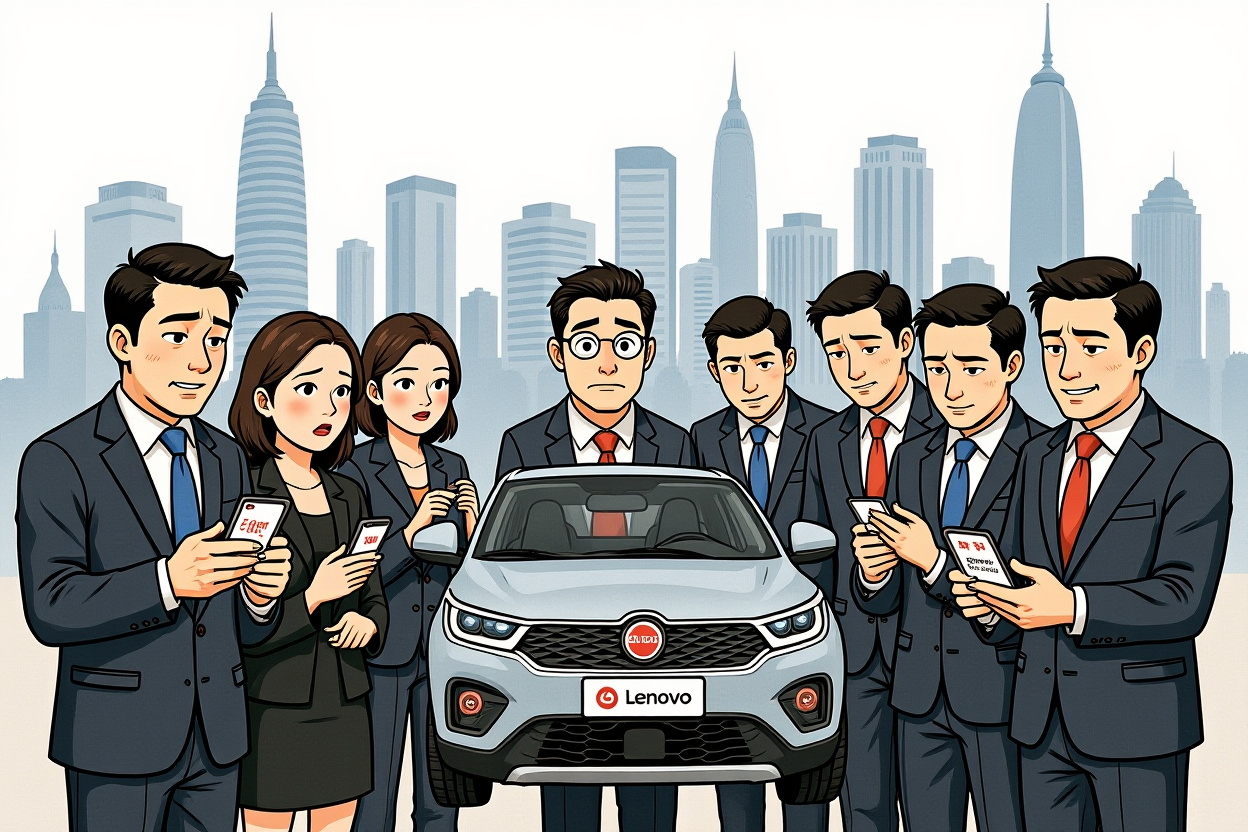On September 11, 2025, thousands of Neta Auto owners received a shocking message: their connected car services would be discontinued unless they purchased data packages directly from Lenovo’s懂通信. This sudden disruption highlights the vulnerabilities in modern vehicle connectivity and raises serious questions about consumer protection in the era of smart automobiles. The Neta Auto connectivity crisis has left nearly half a million Chinese drivers scrambling to restore basic functions they were promised would remain free for three years.
The Sudden Service Disruption
On September 11th, numerous Neta Auto owners including Wang Yan (a pseudonym) received a group message from Hezhong Automotive, Neta’s parent company. The message stated that due to Guangdong Lenovo懂通信有限公司’s unilateral refusal to honor their vehicle connectivity service agreement, connectivity services would be gradually suspended.
The notification advised owners: “To avoid impacting your vehicle usage, if your Neta Auto can no longer connect to the internet, you can independently purchase data through Lenovo懂通信’s WeChat official account or call their customer service hotline at 4006410041.” The message specifically warned owners to carry their smart keys until they completed data purchases to avoid unnecessary inconvenience.
Historical Context of Connectivity Issues
Previous Service Interruptions
This wasn’t the first time Neta Auto owners faced connectivity problems. As early as April 2025, numerous owners reported to First Financial that they couldn’t use the Neta Auto app to unlock doors or perform remote operations like activating air conditioning. At that time, the app displayed a message: “Vehicle network temporarily disconnected, please try again later.”
Although service resumed after several days, owners remained concerned about future disruptions. Their fears materialized when the September 11th announcement made clear that without self-paid top-ups, owners would lose access to the Neta Auto app and remote vehicle functions including climate control and remote start capabilities.
Corporate Financial Troubles
Hezhong Automotive’s Downward Spiral
Once a leading new energy vehicle startup, Neta Auto sold 152,000 vehicles in 2022. However, strategic missteps and cash flow problems led to factory shutdowns and sales network interruptions. The parent company’s financial deterioration culminated in Hezhong New Energy’s management announcing a pre-recruitment notice for restructuring意向投资人 on June 30, 2025, marking Neta Auto’s formal entry into bankruptcy proceedings.
According to property status reports and preliminary investigations, as of May 1, 2025, Hezhong New Energy’s assets primarily consisted of fixed assets, machinery equipment, intellectual property, and accounts receivable. The pre-recruitment process for restructuring意向投资人 has concluded, with the first creditors’ meeting scheduled for September 12th via online conference.
Lenovo懂通信’s Position
On the morning of September 11th, Lenovo懂通信 issued a “Statement on Hezhong Vehicle Connectivity Service Arrears Triggering Service Suspension.” The company stated that Hezhong Automotive had failed to pay relevant service fees on time due to operational problems. Despite months of communication and negotiation, the parties couldn’t reach agreement on payment issues, creating significant cost pressures for Lenovo懂通信 and enormous service guarantee risks for vehicle owners.
“In accordance with relevant laws and our contract agreement with Hezhong, all vehicles involved in payment arrears will gradually trigger system shutdowns this month,” Lenovo懂通信 announced. Responding to owner demands, the company launched a “Neta Owner Data Guarantee Plan” to ensure continued connectivity services. Owners can now order data services through the “懂的车联” WeChat official account or mini-program.
Owner Response and Service Restoration
Immediate Impacts on Vehicle Functionality
The connectivity shutdown affected nearly 500,000 Neta owners across China. Without connectivity, owners lost:
– Remote door locking/unlocking capabilities
– Climate control preconditioning
– Vehicle status monitoring
– Navigation and real-time traffic services
– Entertainment system functionality
Multiple Neta owners confirmed that after purchasing data packages through either the Neta Auto app or Lenovo懂通信’s official account, vehicle functions gradually restored. Remote air conditioning control and other features returned to normal operation.
Available Data Packages and Pricing
Lenovo懂通信’s WeChat account launched a “Neta Owner Service Zone” within its “懂充值” section, offering four data package options:
– Basic Function Package: 5.9 yuan
– Monthly Smooth Package: 29.9 yuan (includes 1 month of basic connectivity data + 20GB entertainment data)
– Annual Worry-Free Package: 299 yuan
– Three-Year Premium Package: 699 yuan
This new pricing structure means Neta owners must now pay out-of-pocket to maintain functionality they were originally promised would remain free for three years following vehicle purchase.
Industry Implications and Consumer Protection
The Broader Connectivity Service Landscape
The Neta Auto connectivity crisis raises important questions about the sustainability of connected car services, particularly when manufacturers face financial difficulties. As vehicles become increasingly software-dependent, consumers may find themselves vulnerable to service disruptions beyond their control.
Industry analysts suggest this incident might prompt regulatory scrutiny of connectivity service guarantees and whether automakers should be required to establish escrow accounts or other protection mechanisms to ensure continued service regardless of corporate financial status.
Moving Forward: Lessons and Precautions
The Neta Auto situation serves as a cautionary tale for both automakers and consumers. For manufacturers, it highlights the importance of sustainable business models that account for long-term service obligations. For consumers, it underscores the need to understand the dependencies built into modern vehicles and potential vulnerabilities when purchasing connected cars.
As the automotive industry continues its digital transformation, all stakeholders must work toward establishing clearer standards and protections that ensure consumers don’t lose essential functionality due to corporate financial difficulties. The Neta Auto connectivity crisis may well become a landmark case that shapes how connected services are structured and guaranteed in the future.
Vehicle owners affected by similar situations should regularly back up their vehicle access methods and stay informed about their manufacturer’s financial health. As connectivity becomes standard in modern vehicles, consumers must advocate for stronger protections that ensure they maintain access to features they paid for, regardless of what happens to the company behind the technology.




